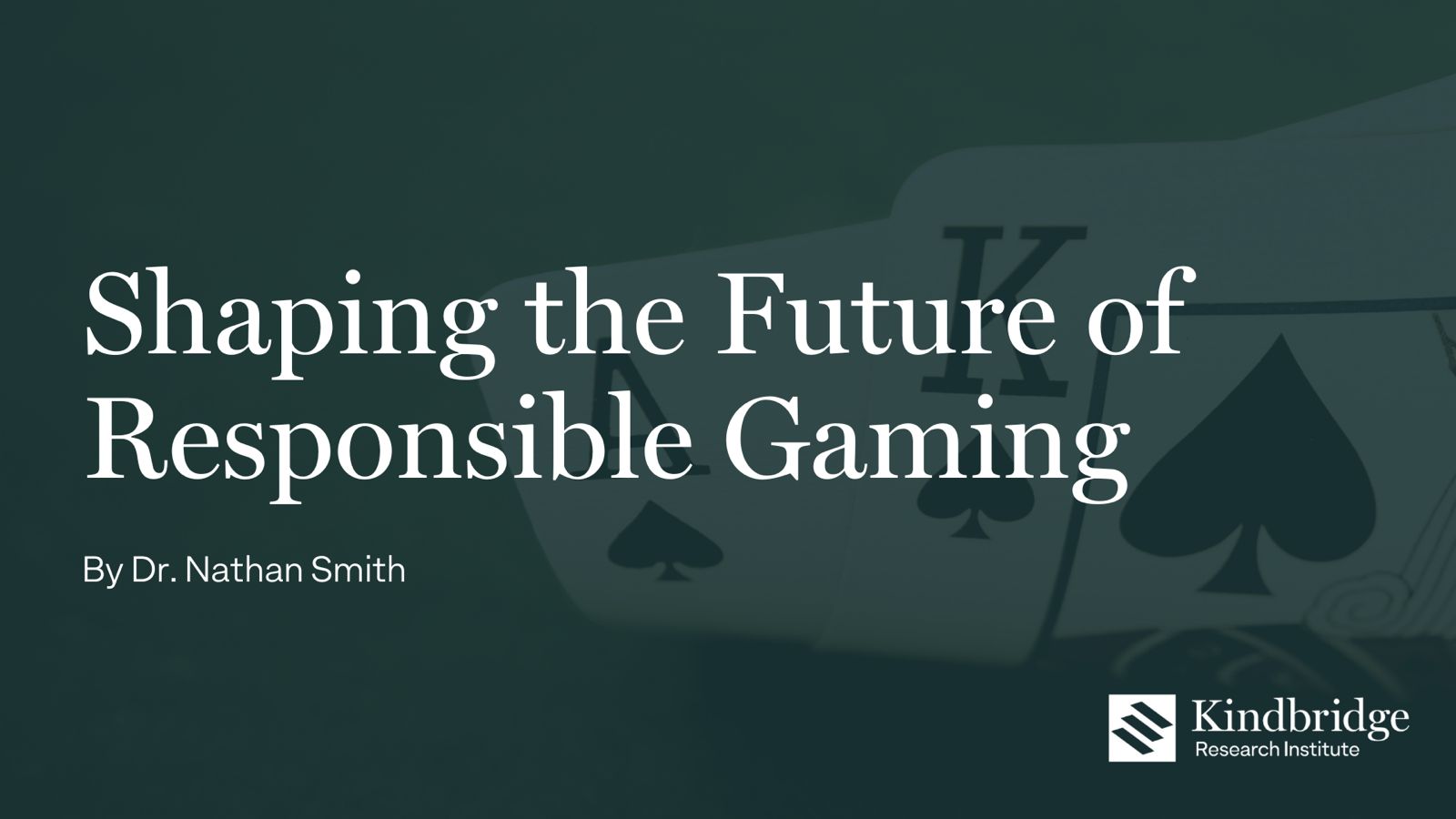Dr. Nathan D. Smith, Executive Director of Kindbridge Research Institute, explored the role of technology in responsible gambling alongside industry experts Jeremiah Weinstock of St. Louis University, Jade Luchauer of IGT, Earle G. Hall of Axes.ai, and moderator Alan Feldman of UNLV at the 24th Annual International Center For Responsible Gaming Conference on Gambling and Addiction.
Understanding Ecological Validity
Ecological validity is a crucial concept that helps us address the question of whether what we observe in scientific experiments in the lab accurately translates to real-world situations. A classic example of this is a sleep study. Imagine a person who is struggling with sleep issues at home; they decide to consult a doctor who suggests a sleep study. The sleep study takes place in a laboratory setting, with the person connected to wires, tubes, and various sensors to monitor their physical reactions, while cameras record their sleep patterns. They sleep in an unfamiliar bed with different bed sheets in an unfamiliar room, typically in a hospital or laboratory setting. The key question regarding ecological validity is how well the findings from this sleep lab apply to the person when they return home.
These findings likely wouldn’t apply well, as many times when I wake up in the middle of the night, it’s because my cat is tap-dancing on my head or my four-year-old has decided that the middle of the night is the perfect time to discuss his aspirations of becoming a paleontologist. In my case, the lab study would likely have limited ecological validity.
The same questions can be raised in the context of responsible gambling. We’ve heard about intriguing laboratory research conducted by Dr. Luke Clark. Regardless of the quality of the work and Dr. Clark’s efforts to make the lab environment as similar as possible to a real casino, there are certain aspects of the real world that simply cannot be replicated. For instance, individuals experiencing harm from slot machines cannot be included in studies of responsible gambling technologies on slot machines for ethical reasons. Ethically, we never want to conduct experiments that could harm someone. The significant challenge with this ethical protection is that those experiencing harm from problem gambling are the very individuals who could benefit from responsible gambling tools in the real world. Consequently, it’s difficult to test any responsible gambling tool in the lab with great confidence that it will exhibit strong ecological validity when it is implemented on the casino floor.
The Future of RG and Technology
When assessing the current state of the responsible gambling (RG) landscape, we see many jurisdictions chasing tactics. If we consider any intervention within a broader and more comprehensive strategic framework, each specific intervention can be seen as a tactical move. Ideally, each of these tactics should be executed with the aim of advancing a well-coordinated strategy. This is crucial because it becomes challenging to determine the effectiveness of your tactics if you lack a clear understanding of the overarching strategy you are pursuing. Similarly, each strategy should be guided by a specific goal. The effectiveness of strategies depends on how well they enable you to achieve the goal.
However, as I mentioned, when I look at the field, I see that many jurisdictions are more focused on chasing after the latest trends and technologies rather than developing distinct strategies to achieve well-defined goals. This approach is especially significant in our field, where there is never enough funding to support all possible goals, strategies, and tactics. For that reason, it’s essential for everyone working in this field to carefully prioritize the most valuable goals and employ the most robust strategies along with the most effective tactics.
Big Data in Responsible Gaming
It’s evident at this point that the amount of data being collected and made available for responsible gambling purposes is colossal. Additionally, this data is continually expanding, like an ever-growing and relentless tsunami. The question then becomes, how do you navigate this data flood?
In my view, and this is something we consistently think about at the Kindbridge Research Institute (KRI), the appropriate response to this ever-expanding tsunami of data is not to frantically chase after more data, speed up, and get caught in an endless cycle of accumulation. Instead, I would suggest that as the data becomes larger, faster, and noisier, the right course of action is to slow down, quiet the chaos, and refocus on the basics. This involves asking ourselves critical questions like: What are the fundamental questions we need to address? What research measures can shed light on these questions? How do we interpret the measures and data we’ve collected?
We’ve reached a point where we no longer need to aggressively chase data: the data is chasing us. Our task is to slow down and focus on clear and critical questions, and that’s where we invest a significant portion of time and effort. This is how KRI approaches the daunting tsunami of data.


